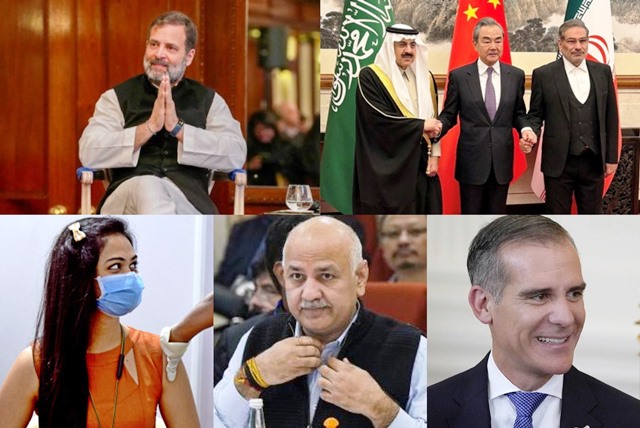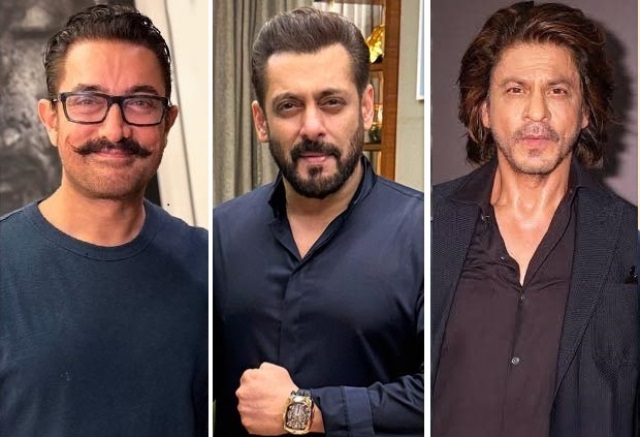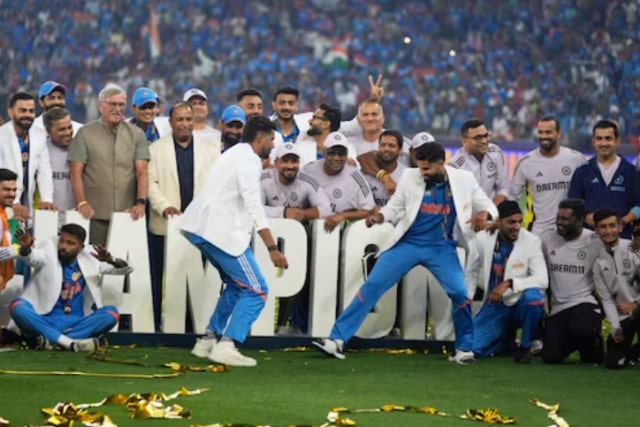
Expel Rahul Gandhi? Or Allow Him to Speak?
Should Rahul Gandhi be allowed to speak or be expelled from Lok Sabha?
Last week the Bharatiya Janata Party (BJP), which leads India’s ruling regime, issued a notice in Lok Sabha urging the speaker seeking an order to expel Rahul Gandhi, Congress MP and a former president of the party. The grounds for seeking his expulsion were allegations that he had breached his privileges as a parliamentarian by the comments he had made about governance in India, India’s foreign policy, particularly related to China, and issues concerning democracy and freedom of speech in the country. Gandhi was reported to have made these comments during a recent foreign visit to the UK where he had several speaking engagements.
For four days scheduled normal work in Parliament had come to a halt while members of the ruling regime and those from the Opposition, chiefly Gandhi’s party, sparred over this. While in the UK, Gandhi had alleged that Indian democracy was in peril and that he was not allowed to speak freely in Parliament. Last week, amid the noisy protests and counter-protest in Parliament, Gandhi followed up his UK speeches by meeting with the Lok Sabha speaker and asking that he be given time to speak on the floor of the House. Gandhi referred to four members from the BJP who spoke in Parliament and accused Gandhi of “belittling” and “insulting” Indian democracy on foreign shores.
Gandhi was quoted in The Hindu as saying: “If Indian democracy was functioning, I would be able to say my piece in Parliament.” And adding: “So, actually what you are saying is a test of Indian democracy, after four BJP leaders made allegations about a member of Parliament, is that member of Parliament going to be given the same space that those four members were given, or is he be going to be told to shut up?”
Well, does Gandhi deserve the right to speak his mind in Parliament? Or should he be expelled for breach of privilege? The answer would depend on how his statements made in the UK are interpreted against the privileges enjoyed by MPs in India.
The Indian parliament and its members from both houses (the Lok Sabha and the Rajya Sabha) enjoy certain rights and protection. The Constitution of India grants MPs privileges or advantages under Articles 105 and 194 so that they can carry out their responsibilities and functions without hurdles. These privileges are aimed at ensuring proper democratic functioning of the legislature. The question is whether Gandhi breached these privileges by making the statements that he did while in the UK.
It would all depend on how the speaker of the Lok Sabha, Om Birla, responds to the notice. If the speaker decides that it is a matter that warrants discussion then the notice would be sent to the Lok Sabha’s committee of privileges, which could investigate the matter and decide whether Gandhi was in breach of the privileges that he is entitled to as MP. It could then prepare a report on the matter, which along with recommendations for action against Gandhi, could be tabled before the House for a decision.
Going by precedence, however, it is not common for breach of privilege notices to be escalated by the speaker to the next level by referring them to the privileges committee. But Gandhi also faces another complaint that the privileges committee is already examining. These are charges against him of making “derogatory” comments about the Prime Minister, Narendra Modi, which allege that he (Modi) gave favourable treatment to the industrialist, Gautam Adani, who was recently accused by an activist short selling firm of financial manipulation and deception.
How the charges against Gandhi will pan out could likely be seen next week in Parliament. Will he be allowed to speak? Or will the notice against him be acted upon? Or, will the House continue to be disrupted as the fracas between the ruling regime and the Opposition stymies normal work to the detriment of the nation?
To make sense of the world, watch China; not the US
It was a case of the mediator making bigger news than the two long-time foes who shook hands last week. When Saudi Arabia and Iran, two countries that have been in confrontation for many decades, partly based on historical and religious enmity, decided to shake hands and resume diplomatic relations, it was a major breakthrough in the geopolitics that dominates West Asia. Saudi Arabia, dominated by Sunni Muslims, and Iran, which is dominated by Shia Muslims, have been at loggerheads for long. And their conflict (accompanied by proxy wars) has been known as the Cold War in the Middle East, an analogical reference to the Cold War between the West, notably the US and the erstwhile Soviet Union.
But while geopolitical analysts have welcomed the beginning of a rapprochement between Saudi and Iran, the spotlight shone more brightly upon the mediator—in his case, China, led by its hugely powerful president and head of state Xi Jinping. China’s emergence as a broker of peace in the Middle East is of great significance and can be seen as the beginning (or, as some analysts would say, continuation) of the development by which it is has begun supplanting the gradually declining dominance and clout of the US in the region.
The Middle East is important for China for obvious reasons. Shorn of all frippery, the Middle East is of importance for all major nations for its oil. By enabling the “handshake” between Saudi and Iran, China has now become a close and reliable ally of two of the world’s largest producers of oil. And instead of others, such as the US and Russia, it has not had to resort to armed conflict in the region. Xi’s diplomacy is driven by his country’s economic and commercial objectives.
For China, gaining a major presence in the Middle East ties in with its overall strategy of the Belt and Road Initiative (BRI) by which it wants to connect Asia with Africa and Europe through land and maritime networks aimed at improving regional integration, increasing trade and stimulating economic growth. Brokering peace between Saudi and Iran will give it the boost it needs to cement the BRI in the region.
In fact, more than the moves that the US makes in the global arena, it is China’s moves that deserve to be observed with more focus. Last week the US president Joe Biden made a bit of news when he welcomed the International Criminal Court’s “arrest warrant” against Russia’s president Vladimir Putin for “war crimes” in Ukraine. The warrant means nothing. Russia is not a member of the ICC, which is based in The Hague and has no jurisdiction in Putin’s country. Biden’s welcoming of a warrant that is unlikely to be exercised is even less significant. It is non-news.
What is of major significance, however, is the announcement that Xi Jinping would be visiting Russia next week in his first visit after Russia attacked Ukraine and started the ongoing war back in February 2022. Although China claims that it is a neutral peace broker between Russia and Ukraine that should fool nobody. China’s diplomatic and commercial ties with Russia have been growing consistently. Xi’s visit, which will be marked by a face-to-face meeting between him and Putin, therefore, could signal the fast-emerging superpower’s support for Putin and for Russia, something that could be an unambiguous wake-up call for the West. To make sense of where the world is headed, watch China. And not the US.
Preventing another Covid wave
In directions to six Indian states–Maharashtra, Gujarat, Telangana, Tamil Nadu, Kerala, and Karnataka—the Centre’s health secretary has asked the state authorities to pre-empt and control the sudden and resurgent trend of spreading infections related to the Covid virus. The states have been asked to focus on testing, treating, tracking, and vaccination.
Last week, on Thursday, 700 Covid cases were recorded in a day after an interval of four months and they were concentrated in these six states. India wants no repeat of the past waves of the Covid related cases, hospitalisations, and deaths.
Mainly because of India’s huge population and its density, the several waves of the virus since the pandemic emerged in November 2019 have taken a big toll on India. The number of people infected by Covid is reported at 44,694,349; the number of deaths at 530,799; and the number that recovered from the illness at 44,158,161.
Another case against Sisodia!
There was a fresh setback to the deputy chief minister of Delhi, Manish Sisodia, who is also a trusted lieutenant of the chief minister and Aam Aadmi Party (AAP) president Arvind Kejriwal, who has been in custody after the Central Bureau of Investigation (CBI) arrested him in connection with a (now withdrawn) new liquor sales policy.
Now, the CBI has charged him with surveilling people and political entities that were opposed to the AAP government and its leaders. According to the charges, Sisodia allegedly misused the Feedback Unit formed by the Delhi government. The unit, set up in 2015, was aimed at gathering ‘actionable feedback’ about the working of government departments and related agencies. The CBI has charged Sisodia with using it to snoop on his party its leader’s opponents. AAP has, of course denied it and said that the CBI move is politically motivated by the Centre and the ruling regime led by the BJP, an arch opponent of AAP.
India gets an US envoy after 2 years
Although Eric Garcetti was appointed by Joe Biden as the new Ambassador to India in 2021, he couldn’t take office because of an ongoing dispute. When Garcetti was mayor of Los Angeles, he was believed not to have taken appropriate action against an aide who was accused of sexual harassment. Last week, finally, Garcetti was cleared to take office in New Delhi.
For two crucial years, Washington did not have a man in India’s capital. This has particularly been critical in the past year since the Russia-Ukraine conflict. India has not unambiguously condemned Russia and continues to have trade and defence ties with the country—it buys huge amounts of Russian oil as well as weaponry. This has irked the US, which also a major trading partner of India. The US is also concerned about the growing influence and impact of China in the region, especially on the border that the latter shares with India.
At a juncture such as this, having an US envoy in India is important and this is now finally completed.
Read More Article: http://13.232.95.176/



